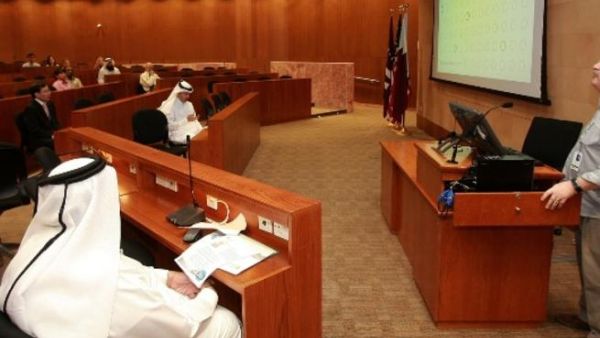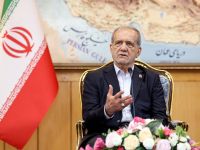Green Building Agenda advanced at collaborative workshop

A two-day workshop, themed around the greening of the urban environment, took place in Doha last week. The event was organised by Qatar Green Building Council (QGBC) in collaboration with Texas A&M University at Qatar and the Embassy of the Republic of Korea in Qatar.
Entitled ‘The Problem with Greening the Existing Building Stock – Experiences from Texas, Seoul and Doha’, the workshop featured a variety of immersive sessions. These ranged from the challenges of adapting engineering systems within existing buildings to the interplay of engineering, building users and facility management practices.
The event began with a welcome address from Engineer Meshal Al Shamari, Director of QGBC. “Qatar Green Building Council, as part of its inherent mandate, is working to put the soul back into the buildings in Qatar and the region,” he enthused. “We are encouraged by the fact that a steady stream of like-minded organisations continue to join us in articulating Qatar’s green building interests.
“Despite the phenomenal transformation of cities like Doha or Seoul, we are delighted to share best practice with industry experts on how buildings can indeed be retrofitted and eventually become more sustainable for the communities they serve,” Eng. Al Shamari continued. “Furthermore, we know from experience that research is one of the main components in sustainability, and I believe that improving the green research sector in Qatar can play a vital role in improving current infrastructural development.”
A highlight of the first day was an exploration of the groundbreaking work carried out by Dr David Claridge from the Energy Systems laboratory at Texas A&M, in the city of College Station, Texas. Dr Claridge’s lecture focused on eliminating operating waste through so-called ’continuous commissioning’, which he described as a high-tech tuning up process for existing buildings.
The interactive workshop and conference sessions continued throughout the second day, and featured discussions on design issues, regulatory incentives and buildings’ adaptive reuse, with case studies in Doha, Texas and Korea coming under the spotlight.
Highlights from day two included a workshop led by Holley Chant, Corporate Director of Sustainability at KEO International. She focused on opportunities in the region to optimise sustainability in existing buildings, and examined the potential for professionals to transfer their expertise from new build sustainability projects to those in existing buildings.
The second day also featured a session on how to improve indoor environmental quality and reduce energy consumption. Presentations on innovative design practices from Korea, and discussions on the Korean experience in Doha, also took place.
“This is a great platform to share the policies and experiences of green growth and application of green building technologies between Korean, Qatari and American professionals. Korean companies participating in this forum are among the best in the field and this workshop demonstrated how their technologies could be applied effectively in Qatar. I hope this will be a springboard for further cooperation in the field of sustainable building technologies,” commented H.E. Chung Kee Jong, the Ambassador of the Republic of Korea to Qatar, who facilitated a team of Korean experts to Qatar.
John Bryant, a professor of Mechanical Engineering at Texas A&M University in Qatar, presented on the importance of educating and training facility management. “We need to raise awareness about those on the ground sweeping the floors and taking out the rubbish,” he said. “In a nutshell, we need to educate our communities to show respect to those running our buildings.”
Professor Bryant went on to stress the importance of QGBC’s role in connecting industry professionals, saying, “We are thankful to QGBC for being integral in leveraging connections which encourage local innovation in green and sustainable practices.”
The event was geared at empowering and educating the ever-evolving green building industry in Qatar, and was organised as part of QGBC’s mission to equip a sustainable building industry that is aligned with the ambitions of the Qatar National Vision 2030, in particular its environment protection pillar.
Background Information
Qatar Foundation
Qatar Foundation (QF) is a non-profit organization made up of more than 50 entities working in education, research, and community development.
Our unique ecosystem—supported by partnerships with leading international institutions—is built on initiatives that address our most pressing challenges, create global opportunities, and empower people to shape our present and future.






